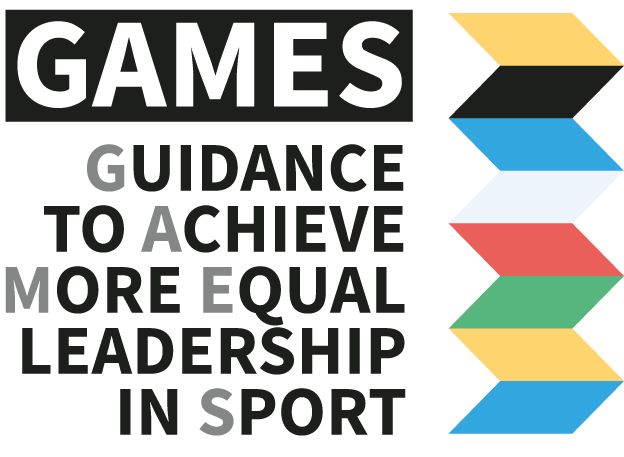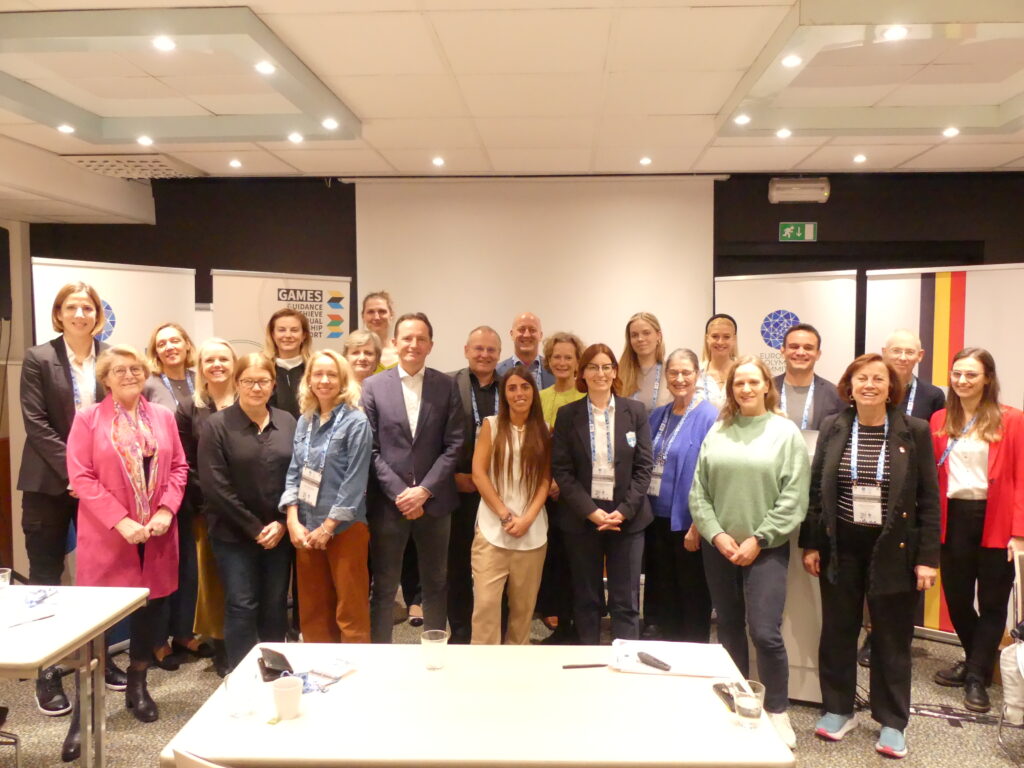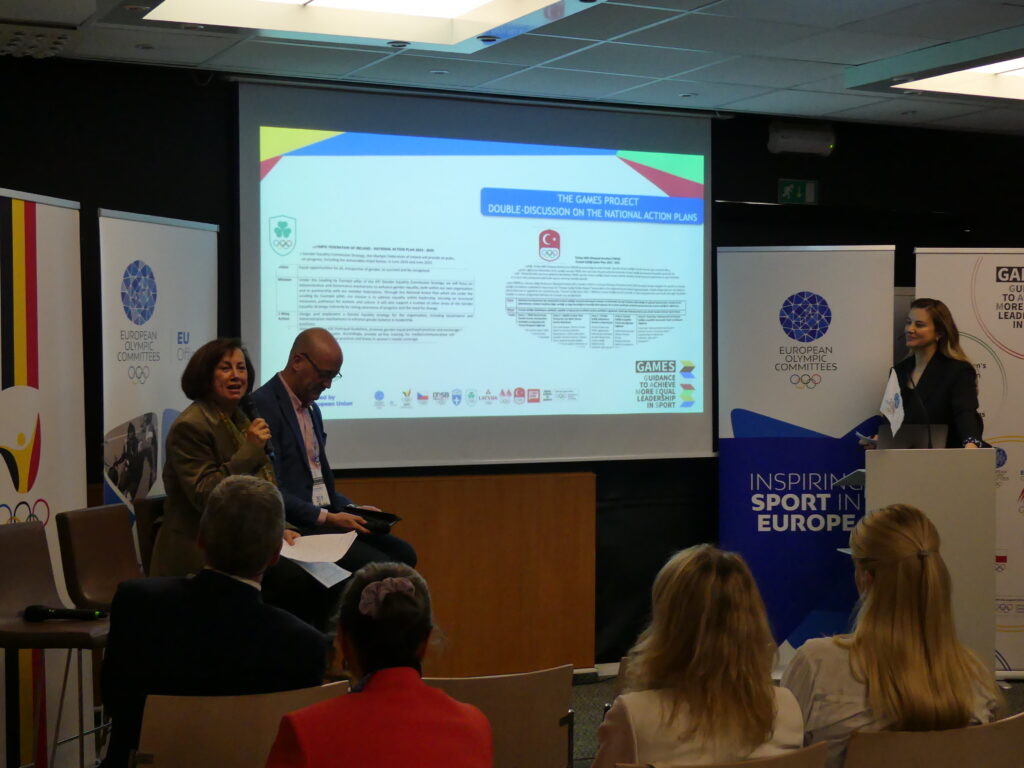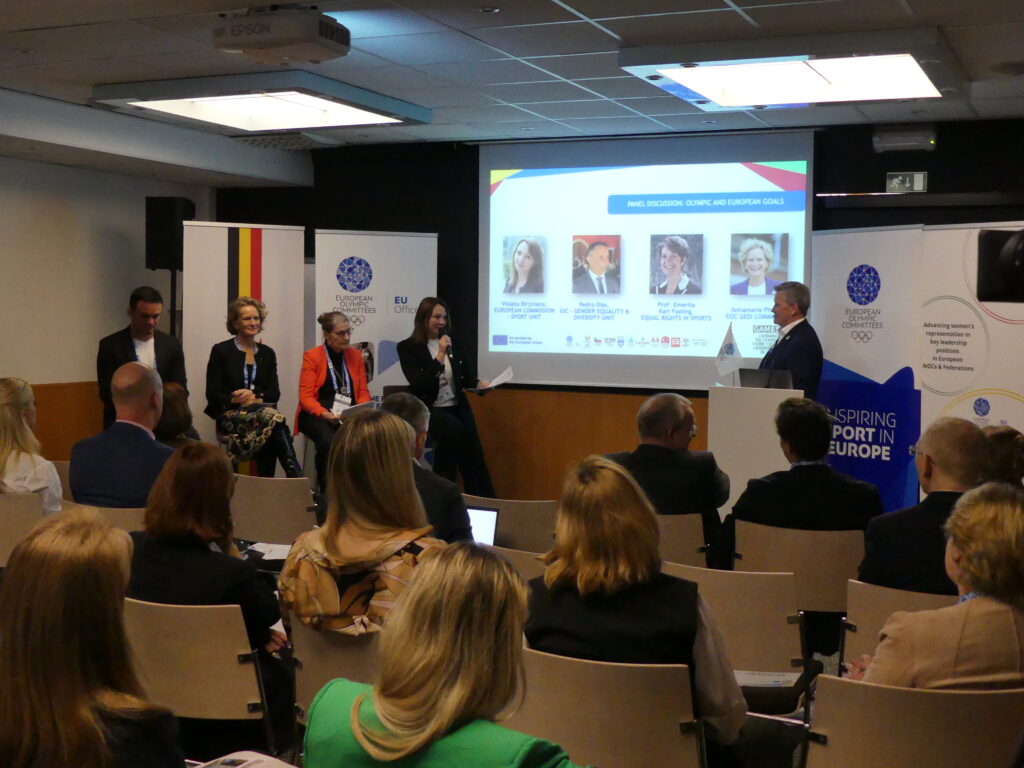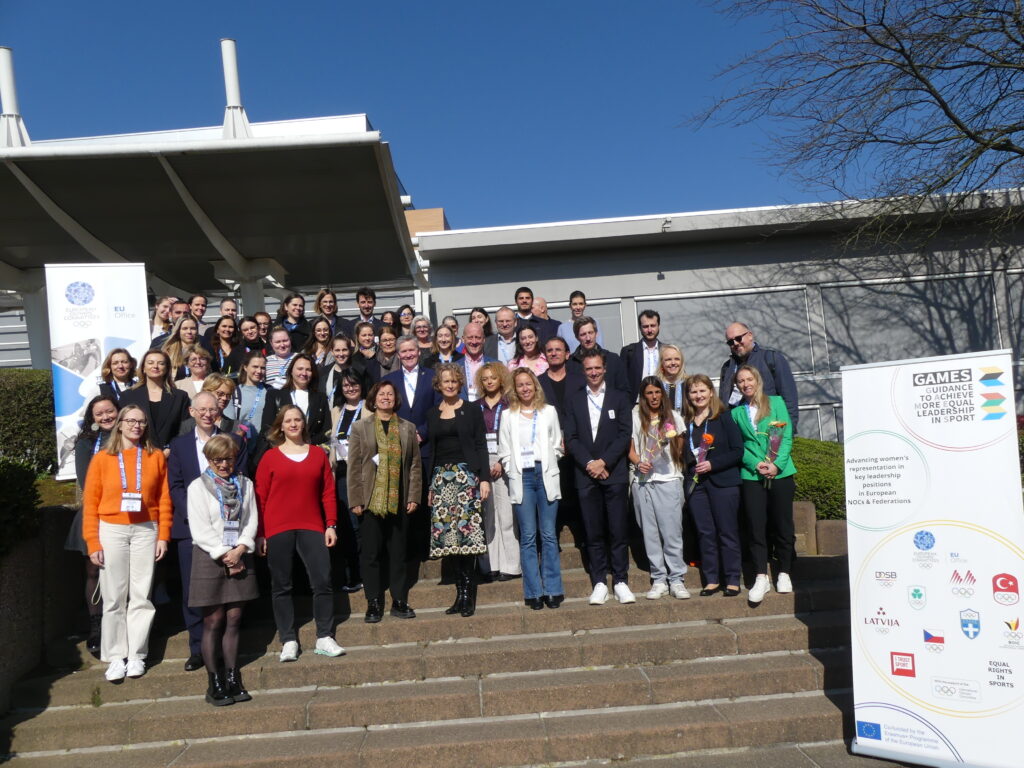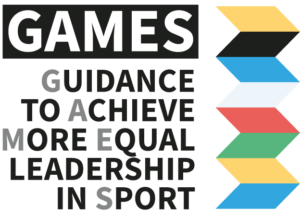The Final Conference and last Transnational Project Meeting of the GAMES project took place on 7 and 8 March 2024 in Brussels to celebrate the conclusion of the project. The Final Conference aimed to present the results and deliverables produced in the framework of the project and celebrate the achievements of its partners over 24 months. Besides, the consortium had the opportunity to discuss the legacy and future of GAMES during the last Transnational Project Meeting that was held on the day preceding the Final Conference.
GAMES Transnational Project Meeting (TPM)
The meeting gathered representatives from the partners National Olympic Committees (NOCs), experts on gender equality and sports governance such as Professor Emerita Kari Fasting (Equal Rights in Sports) and Rowland Jack (I Trust Sport), as well as the IOC, and the EOC representatives. The primary scope of the Transnational Project Meeting was to discuss the project´s legacy before the Final Conference.
The meeting was opened by Folker Hellmund (Director of the EOC EU Office) and Jean-Michel Saive (President of the Belgian Olympic and Interfederal Committee) who thanked all participants for their attendance and recognised the value of working together on the topic of gender equality in sport leadership under the GAMES project.
The meeting continued with an overview of the status of the project and remaining steps (i.e. evaluation and reporting) before holding a group discussion on the legacy of the GAMES network and the implementation offuture activities, joint events, and initiatives also related to the EOC Gender, Equality Diversity and Inclusion Commission.
To conclude the meeting, the consortium was thanked for its outstanding work and commitment whilst the closing remarks highlighted the importance of continuing to maintain the momentum and cooperation among European NOCs to tackle common challenges related to gender equality in sports leadership.
GAMES Final ConferenceThe Final Conference was moderated by Sukran Albayrak (Turkish Olympic Committee) and Robert Hartnett (Irish Olympic Committee) and it provided a better understanding of the final steps needed to boost gender equality in the leadership of sport organisations and presented the tools the GAMES project has developed for this purpose.
Folker Hellmund (Director, EOC EU Office) and Cédric van Branteghem (Secretary General, Belgian Olympic Committee) officially opened the GAMES Final Conference. Accordingly, the relevance of gender equality for sports organisations was underlined whilst showcasing the importance of the GAMES project to support sporting organisations to improve their good governance standards in terms of gender equality. Participating NOCs as well as the IOC, the European Commission were thanked for supporting NOCs on their way to gender equality.
The GAMES Project activities and deliverables. Rowland Jack, the Founder of I Trust Sport presented the key findings of the "Baseline study on gender equality" conducted within the project. This study aimed to gain insights into the current state of gender equality within the participating National Olympic Committees (NOCs) and major National Federations (NFs) in partner countries.
Furthermore, Lochlann Walsh (Irish Olympic Committee) and Nese Gundogan (Turkish Olympic Committee) presented the National Action Plans (NAPs) which were designed by each of the 8 partner NOC throughout the project, based on their different states of readiness and on the political and socio-cultural barriers existing across Europe.
After this, Gwenda Stevens (Belgian Olympic Committee) and Peggy Bellmann (German Olympic Committee) gave insights on their experience in organizing their National Launching Events (NLEs), aiming at promoting the tailormade gender equality strategies of the NAPs at the national level.
Carlotta Giussani (GAMES Project Manager, EOC EU Office) presented the Pool of Actions, one of the core deliverables designed within the framework of the GAMES project. The manual gathers concrete actions to promote gender equality in sports leadership while considering different degrees of operational and cultural readiness.
Panel discussion: GAMES Olympic and European goals Following the presentation of the project´s activities and deliverables, the audience had the privilege to get insights from experts in the field of gender equality and sports, aligned with GAMES objectives.
Firstly, Violeta Birzniece (Policy Officer, European Commission Sport Unit) discussed the relevance of Erasmus+ projects like GAMES to implement recommendations of the High-Level Group on Gender Equality to the level of sport organisations. Additionally, Ms. Birzniece presented the upcoming EU Work Plan for Sport and the implications that it will elicit on gender equality in sport.
The relevance of gender equality in sports was showcased by Professor Emerita Kari Fasting (Founder of Equal Rights in Sport) who highlighted the importance of gender equality as a fundamental human right. Professor Emerita stated the main existing barriers for women in sports and their implications on sport organisations as well as on society at large. Strategies and actions to take were highlighted to achieve gender equality in sports organisations´ leadership.
After which, Annamarie Phelps, Chair of the EOC Gender Equality, Diversity, and Inclusion Commission, highlighted the importance of the EOC's objectives, strategies, and specific actions aimed at enhancing gender equality within European NOCs and their affiliated organizations in the future whilst acknowledging the supportive role of the GAMES project in advancing these objectives.
Pedro Dias (Gender Equality and Inclusion Manager, IOC Gender Equality Union) outlined the specific duties of the IOC in advancing gender equality in sports leadership at the international and national levels, as well as within the Olympic movement. Mr. Dias underscored the advancements achieved in terms of gender equality within the Olympic movement and the role of projects like GAMES to play a crucial role in uniting stakeholders within the Olympic movement to support this shared objective.
Success stories: Relevance of Erasmus+ for implementing policies. Following the panel discussion, four partner NOCs of the GAMES project shared the positive impact of Erasmus+ projects like GAMES to implement policies on gender equality within their national organisation. Ilona Burgrová (Czech Olympic Committee), Georgia Papathanasiou (Greek Olympic Committee), Maruta Taima (Latvian Olympic Committee), and Silvija Mitevska (North Macedonian Olympic Committee) mentioned different changes emerged in terms of cultural and structural changes, as well as in terms of pathways for women and contact points for gender equality. Lastly, it was noted that Erasmus+ projects like GAMES enabled NOCs to collaborate and cooperate between them to act on gender equality and make an impact at the European level, beyond their own NOC.
Legacies and other NOCs en route to Gender Equality. In the last part of the Final Conference, speakers presented complementary initiatives and programmes for the lasting legacy of GAMES within the Olympic movement. Maja Poljak (EU Funds & International Cooperation Coordinator, Croatian Olympic Committee) described the alignment of the Croatian Olympic Committee with the objectives and values of the GAMES project, and Sinéad Dowling (Project Coordinator, Olympic Solidarity) proposed available opportunities for NOCs to ensure GAMES' legacy and to continue promoting gender equality and Olympic values with the support of programs granted by Olympic Solidarity.
The Final Conference concluded with the reiterations of the GAMES project leaving a significant and positive impact on gender equality in sports, especially at the leadership level. The audience as well as the GAMES consortium was thanked for their time and commitment to gender equality in sports governance during and beyond the project; accordingly, were invited to continue boosting gender equality across Europe.
Background information on GAMES project.The GAMES project is a 24-month project co-funded by the European Commission through the Erasmus+ Sport Programme 2021 and coordinated by the EOC EU Office. It promotes integrity and good governance in sports by advocating for structural and cultural changes regarding gender equality in leadership and decision-making positions among NOCs and their member federations. The EOC EU Office is implementing GAMES together with 8 NOCs (Belgium, Czech Republic, Germany, Greece, Ireland, Latvia, North Macedonia and Turkey) and renowned experts in the field of gender equality and good governance, including Professor Emerita Kari Fasting from Equal Rights in Sports and I TRUST Sport. Furthermore, the GAMES project is supported by the International Olympic Committee.
